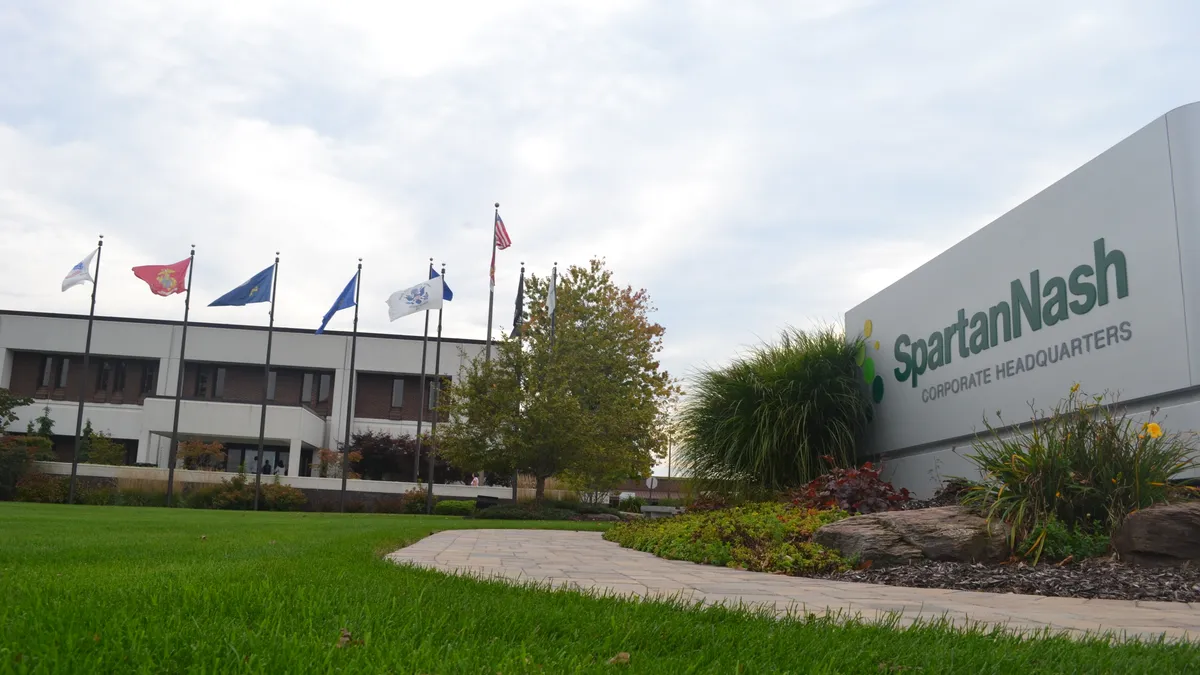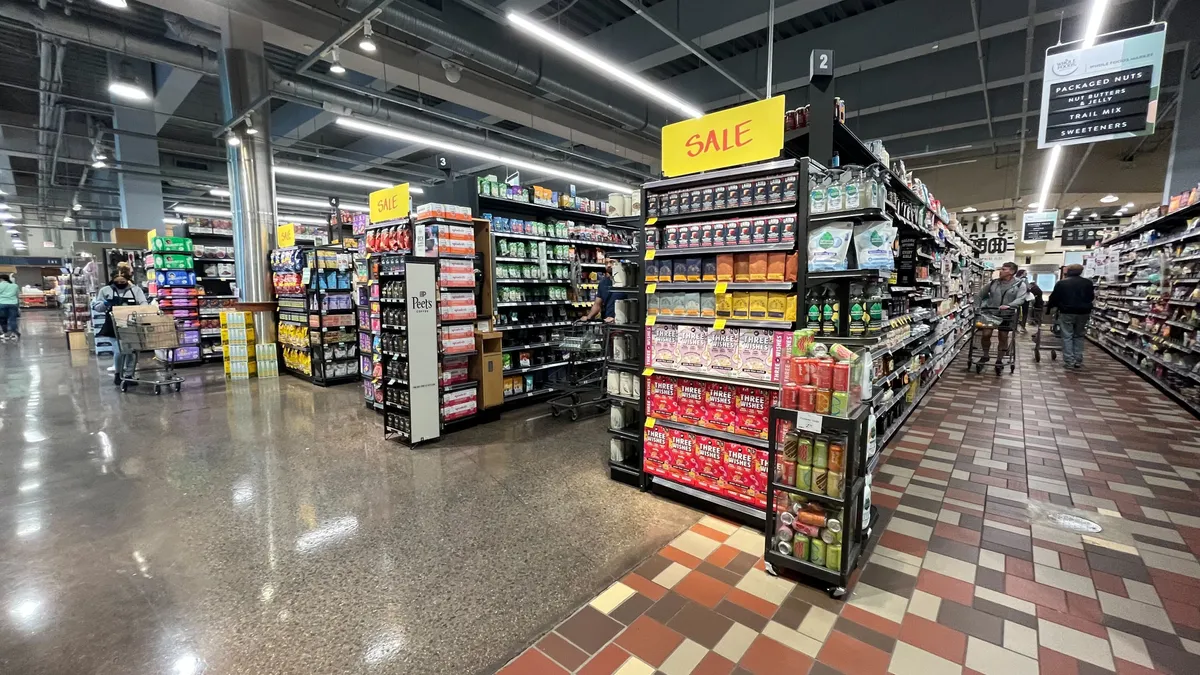Dive Brief:
- SpartanNash reported a 1.3% gain in net sales to $2.39 billion for this year’s first financial quarter, according to a release. The gain was driven by sales increases in the company’s wholesale and military distribution segments — 3.7% and 3.2%, respectively.
- Retail net sales declined $30 million from the year-ago period, to $566.2 million, as Spartan faces an increasingly competitive grocery environment. Same-store sales declined 2.2%.
- SpartanNash reported gross profits were 14.4% of sales compared to 15.2% in the same quarter last year. The company attributed this decline to the timing of supplier programs, a sales mix in its wholesales and military businesses, and retail investments.
Dive Insight:
SpartanNash’s earnings continue to reflect the realities of the food retail business. While stores remain pressured, wholesale operators are capitalizing on the disruption and growing their business.
Wholesaling continues to drive sales and volume gains for Spartan. The company’s Caito Foods division, which it purchased just over a year ago and which sources fresh produce and prepared foods, has integrated fully with its operations and begun delivering returns.
“With the management team and systems now in place at Caito, we are experiencing improved trends in both productivity and profitability,” David Staples, SpartanNash’s president and chief executive officer, said in a statement.
That division, which also includes a $32 million Fresh Kitchen facility that turns out prepared foods, should continue delivering sales growth for the company. But SpartanNash’s retail segment — as with fellow retailer-wholesaler Supervalu — continues to weigh on earnings. Unlike Supervalu, SpartanNash isn’t facing a proxy fight from an activist investor. But like Supervalu, it operates many traditional supermarkets in areas where large chains and differentiated formats are flexing their muscles.
SpartanNash has remodeled some stores and is closing underperforming locations. During this year’s first quarter, it closed three locations, and currently operates 142 stores compared to 153 a year ago. It’s also focusing on improving its product mix. Earlier this year, the company introduced a wide-ranging new private label line, Our Family, which includes staples like peanut butter and milk along with in-demand selections like Greek yogurt and sparkling water.
SpartanNash has also steadily built up its e-commerce business, with 58 stores across five states offering store pickup, and stores throughout its Grand Rapids, Michigan, home market now delivering groceries same-day.
The company’s retail stores have the added value of informing its wholesale service, making the sales losses sting a little less. However, if its new retail programs fail to gain traction, the division could become more of a hindrance than a help to its growing distribution business.










